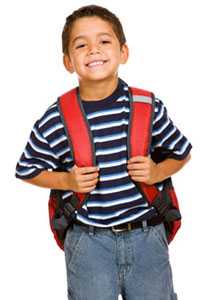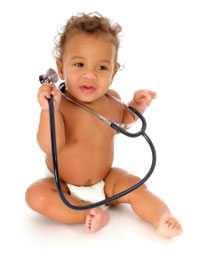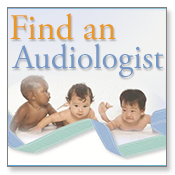Research and Tracking
Determining How Many Children Have Hearing Loss

By studying the number of children diagnosed with hearing loss over time, we can find out if the number is rising, dropping, or staying the same. We can compare the number of children with hearing loss in different groups of people. This information can help us look for causes of hearing loss and help communities plan for services.
We do not know exactly how many children have hearing loss. CDC data have shown that approximately 1 to 3 per 1,000 children have hearing loss. Other studies have shown rates from 2 to 5 per 1,000 children.
Data chart of prevalence studies »
Following are activities that CDC conducts or funds in order to learn more about the number of children with hearing loss:
Metropolitan Atlanta Developmental Disabilities Surveillance Program (MADDSP)
CDC tracks the number of eight year old children in a five-county area in metropolitan Atlanta, Georgia who have moderate to profound hearing loss in both ears. For this project, we define moderate to profound hearing loss as a 40 dB or greater loss in the better ear, without the use of hearing aids.
The average annual prevalence of moderate to profound hearing loss from 1991 through 2010 was 1.4 per 1,000 or 1 in 714 children in metropolitan Atlanta.
National Surveys
CDC conducts two nationally representative surveys that provide data on health conditions in U.S. children: the National Health and Nutrition Examination Survey (NHANES) III and the National Health Interview Survey (NHIS).
- In the 1988-1994 NHANES III surveys, 14.9% of children 6-19 years of age in the United States were reported to have low-frequency or high-frequency hearing loss of at least 16-dB hearing level in one or both ears. [Read summary]
- In the 1997-2008 NHIS surveys, parents reported that that 4.5 per 1,000 children ages 3 through 17 in the United States were deaf or had a lot of trouble hearing without a hearing aid. [Read article]
Screening, Diagnosis, and Intervention Services
Hearing loss can affect a child’s ability to develop speech, language, and social skills. The earlier children with hearing loss start getting services, the more likely they are to reach their full potential.

Hearing Screening and Follow-Up Survey
CDC’s Early Hearing Detection and Intervention (EHDI) Program works with states to collect data for the Hearing Screening and Follow-Up Survey. This survey helps us to learn how many infants are screened for, diagnosed with, and receiving intervention services for hearing loss; the type and severity of hearing loss; and demographic data on infants with hearing loss.
This information is important in order to monitor the impact of efforts to promote infant hearing screening, timely follow-up evaluations, and early intervention services.
Based on the annual survey:
- Over 97% of newborns in the U.S. were screened for hearing loss
- 1.4 per 1,000 babies screened for hearing loss were diagnosed with hearing loss
- Over 70% of infants with a documented diagnosis were diagnosed before 3 months of age.
- About 70% of those with hearing loss were enrolled in early intervention services.
More survey data and information »
Learning More about Hearing Loss
CDC funds a range of studies to learn more about the extent and nature of hearing loss, the experience of individuals and families affected by hearing issues, and ways of improving services to those families.
This research aims to do the following:
- Describe the nature of hearing loss and its effect on families
- Improve structure and quality control for programs monitoring the status of children with hearing loss
- Remove barriers to obtaining effective services
Read about hearing loss studies »
The Public Health Cycle
CDC has consistently been at the forefront of hearing loss surveillance and research. Our work is carried out within a three-prong public health framework: surveillance, research, and intervention.
Read about the public health cycle for hearing loss »
Cochlear Implants & Meningitis
2002 Study of the Risk of Bacterial Meningitis in Children with Cochlear Implants
Many people have received cochlear implants to help them hear and communicate. CDC and the Food and Drug Administration (FDA) carried out a study in 2002 to learn more about a possible link between cochlear implants and bacterial meningitis in children with cochlear implants. This study had two purposes: (1) to find out how many children who had cochlear implants got bacterial meningitis afterwards, and (2) to find out if there are factors that might make it more likely that someone would get meningitis after getting a cochlear implant. The study found that bacterial meningitis occurred more often in children with all types of cochlear implants than in children of the same age group in the general population. It also found that children with an implant with a positioner (a piece used in some implant models) were much more likely to get bacterial meningitis than children with other types of cochlear implants. The implant with a positioner was voluntarily taken off the market by the manufacturer in July 2002.
2004 Study of the Risk of Bacterial Meningitis in Children with Cochlear Implants
After the 2002 study was completed, the FDA continued to receive reports of bacterial meningitis in children with cochlear implants. Because of these new reports, CDC and the FDA updated the 2002 study by looking at reports that were received up to 2 years after the 2002 study ended. The purpose of this updated study was to find out if children with cochlear implants continued to be more likely to get bacterial meningitis than children of the same age group in the general population even after they had their implant in place for more than 2 years. The study found that even two years after implant surgery, children with cochlear implants with a positioner were at greater risk of developing bacterial meningitis than children in the general US population.
CDC and FDA Recommendations
Recommendations from the CDC and FDA based on this study include:
- Children should be up-to-date on vaccines at least 2 weeks before having a cochlear implant if they are not already up-to-date on these vaccinations.
- Parents of children who have already received an implant should check with their child’s doctor to ensure that their child is up-to-date on all vaccinations.
- Doctors and other health care providers should review vaccination records of their patients who are cochlear implant recipients or candidates to ensure that they have received the recommended vaccinations based on the age-appropriate schedules for high risk people.
- Parents of children with cochlear implants should be watchful for possible signs and symptoms of meningitis and seek prompt attention for any bacterial infection their child might have. Any questions parents have about their child’s health should be discussed with the child’s doctor.
- Parents of children with cochlear implants should also be watchful for signs and symptoms of an ear infection, which can include ear pain, fever, and decreased appetite. Parents should seek prompt medical attention for these signs and symptoms.
- Parents should talk about the risks and benefits of cochlear implants with their child’s doctor and should discuss whether their child has certain medical conditions that might make him or her more likely to get meningitis.
Related Articles
Bacterial Meningitis Among Children With Cochlear Implants Beyond 24 Months After Implantation
Pediatrics; February 2006; Volume 117:2:284-289
K.R. Biernath, J. Reefhuis, C.G. Whitney, et al.
[Read article]
Risk of Bacterial Meningitis in Children with Cochlear Implants
New England Journal of Medicine; July 31, 2003; Volume 349:435-445
J. Reefhuis, M.A. Honein, C.G. Whitney, et al.
[Read article]
Feature Articles
Vocabulary and Children with Hearing Loss
A study recently published in the journal, Pediatrics, entitled “Early Hearing Detection and Vocabulary of Children with Hearing Loss,” found that early diagnosis and intervention for children with hearing loss can help them develop communication skills.
(Published: July 10, 2017)
Can Your Baby Hear You Say “I Love You?”
Find out why hearing screening is important, how to get your baby screened, and what to do with the results.
(Published: May 17, 2017)
Hearing Loss Data: 3 Insights
Learn how CDC EHDI is taking a leading role in the collection of quality data.
(Published: May 10, 2016)
Doctors and Infant Hearing
Medical homes should obtain, document, and discuss all hearing screening results. Physicians should provide education and support to families.
(Published: May 11, 2015)
Hearing Screening: What’s your Baby’s Hearing Screening Result?
Babies begin to develop speech and language from the time they are born. All parents should learn the results of their baby’s newborn hearing screening test.
(Published: May 23, 2011)
- Page last reviewed: October 11, 2017
- Page last updated: October 11, 2017
- Content source:



 ShareCompartir
ShareCompartir